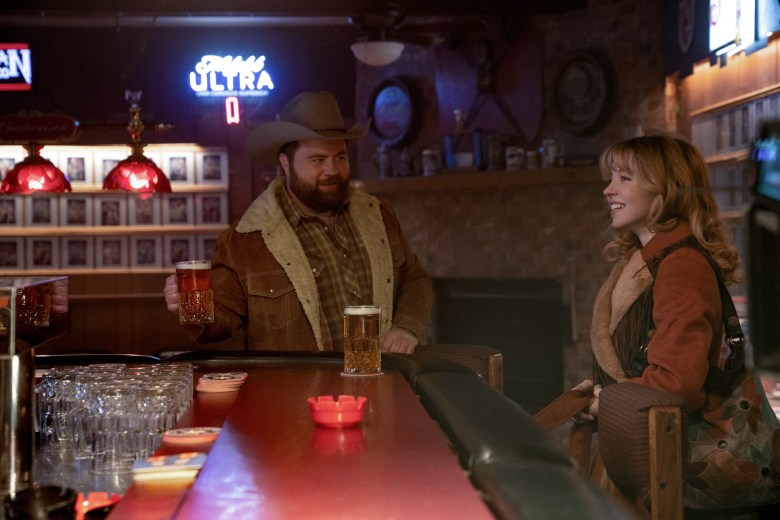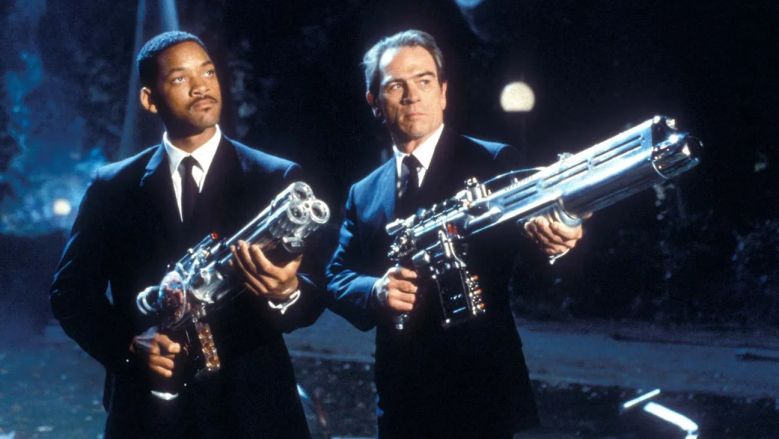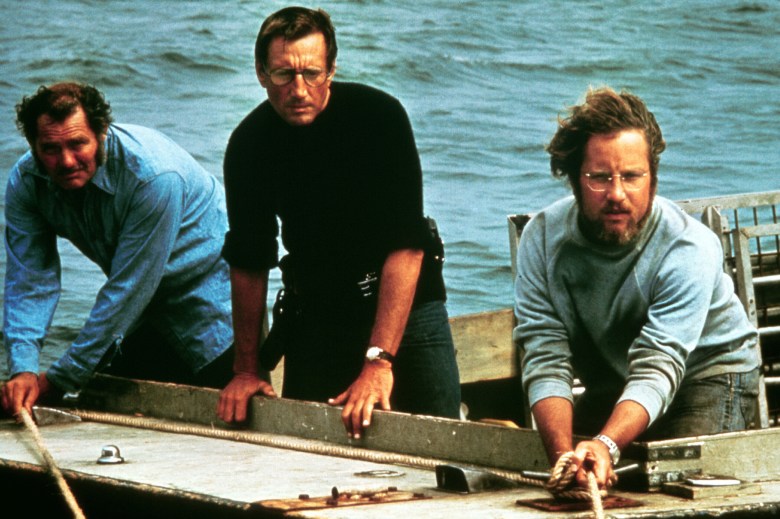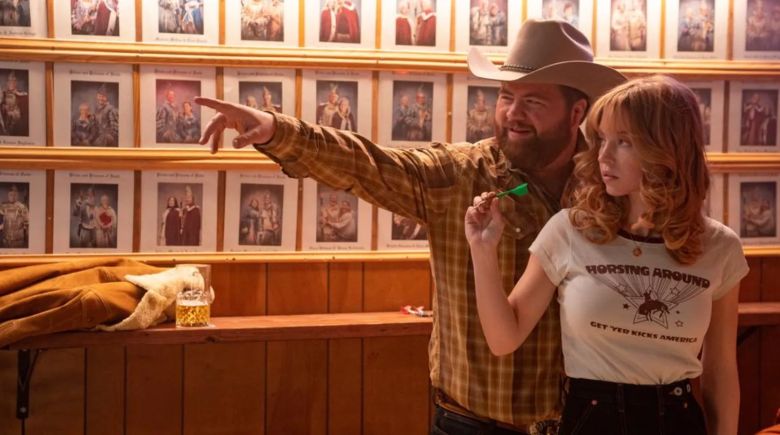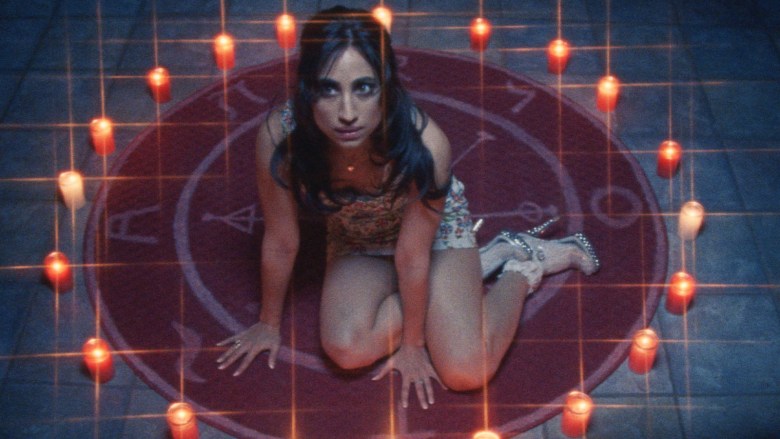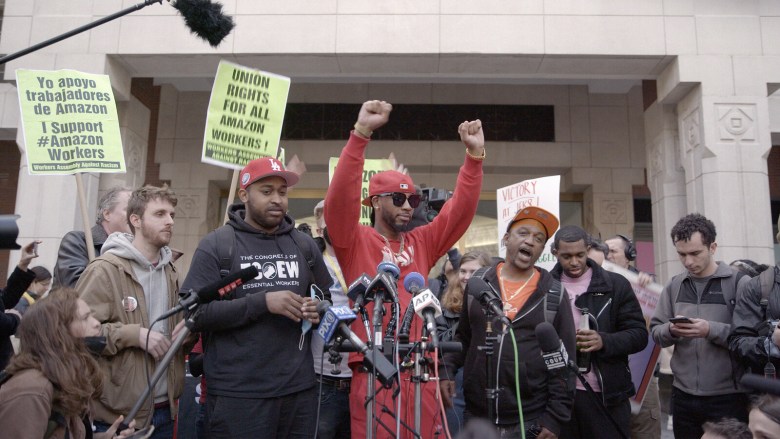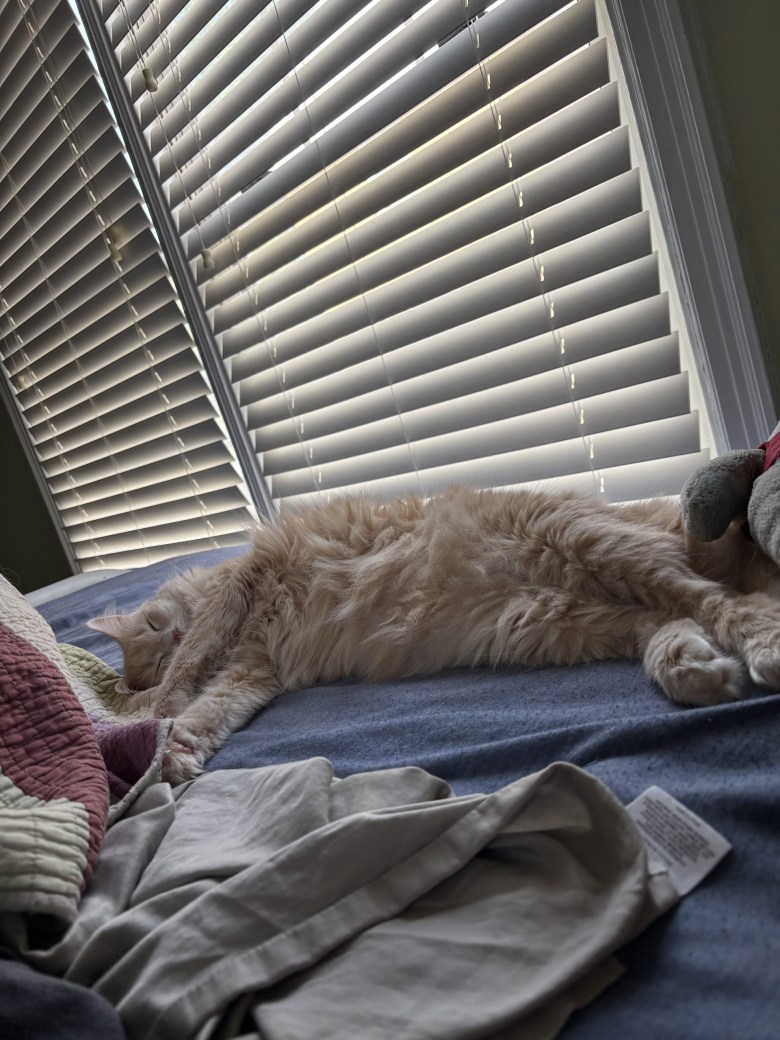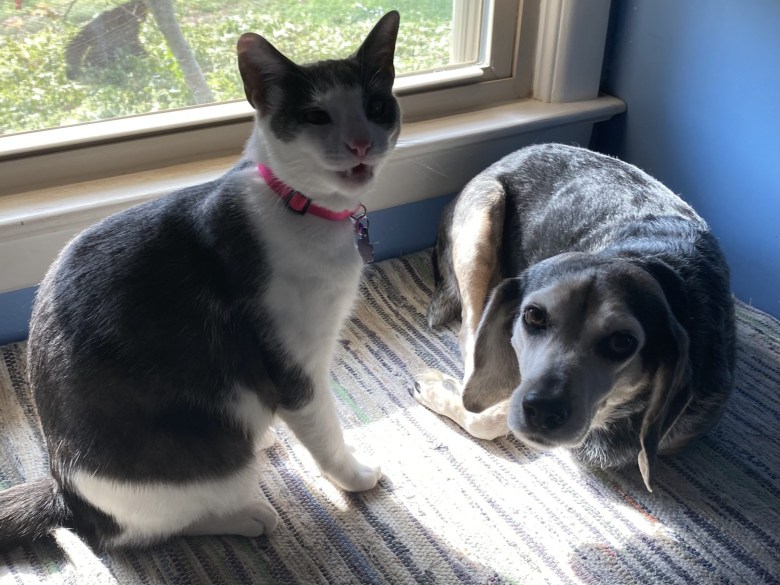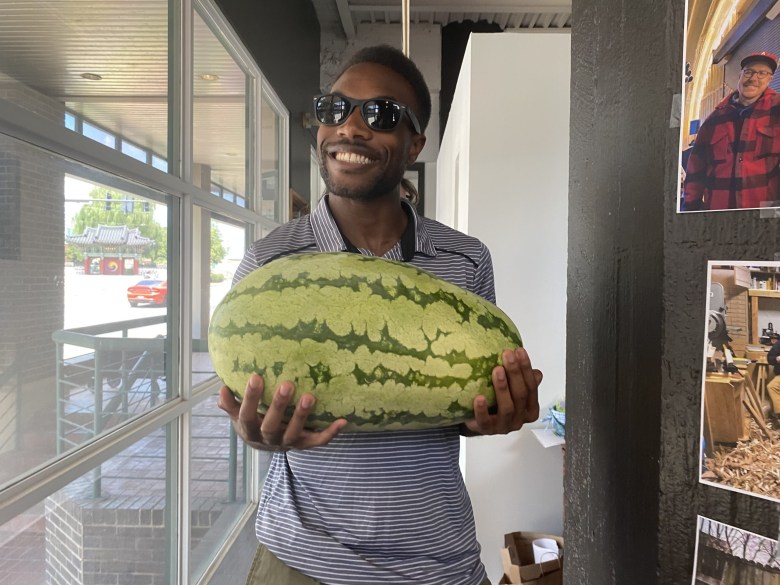The showing of Americana on Wednesday, which was attended by writer/director Tony Tostand and actor Paul Walter Hauser, is undoubtedly the highlight event of the Arkansas Cinema Society’s upcoming Filmland Festival. The film, which also features Sydney Sweeney and pop singer Halsey, was characterized by IndieWire as charming, gritty, and all-around entertaining [with] gallows humor, great performances, and a large heart after its premiere at South by Southwest.
We talked with Tost, who is also known for his work as a writer and showrunner on TV shows like Longmire, Damnation, and Poker Face, about the creation of his directorial debut and his ties to The Natural State, where he lives part-time, ahead of the festival, which takes place at the Arkansas Museum of Fine Arts from August 13–17.
You divide your time between Los Angeles and Fayetteville. What happened to that?
We moved around a lot before settling in L.A., partially because of my job and partly because my wife is a professor at USC. We met in Arkansas, and she is an academic. We spend 70% of our time in Los Angeles because that is where our sons attend high school. Then, throughout the summers and holidays, we return to Fayetteville whenever we can. A few years ago, we were given a spot there. It just made sense because my wife’s family lives in Fort Smith and many of our friends live in Little Rock and Fayetteville. The goal is to slightly reverse it after our sons graduate from high school, with 20–30% in Los Angeles and 70–80% in Fayetteville.
You’re originally from Missouri, correct?
Although I grew up primarily at the foot of Mount Rainier in Washington state, I was born in southwest Missouri.
Then you went to graduate school in the South?
After completing two years of community college in Washington State, I returned to southern Missouri to complete my undergraduate education. I visited College of the Ozarks, which is located outside of Branson. After that, I worked in the Branson area for a year in order to save money for my graduate school application. After earning my MFA in poetry in Fayetteville, my wife and I relocated to North Carolina, where I completed my Ph.D. in English at Duke.
Your background seems to be quite literary. What led you to pursue a career in filmmaking?
I was this trailer park person when I was a teenager, but I fell in love with movies. I had no idea how to achieve my goal of becoming Quentin Tarantino. I majored in English as a result. I looked into film schools while I was finishing my undergraduate degree and discovered I couldn’t afford them. I kind of just went with the more sensible option because I also enjoyed poetry. I decided to give it a try when one of my MFA program colleagues, Nic Pizzolatto [True Detective], made a name for himself as a television writer. I got lucky after Nic, who was a good man, introduced me to some business people, gave me some advise, and put me in touch with his agencies.
Americana is your first full-length motion picture. What made that endeavor different from your work on TV?
A great deal of overlap exists. Being a showrunner is the closest thing you can get to being an auteur filmmaker. I sat in all the chairs and performed all the duties that I would perform as a director by creating and producing television. It was a great training ground for prepping, talking to department heads, casting, interacting with the cast and crew on set, and post-production work.
Even though TV has been my mainstay, if I had to choose, I would say that I prefer movies to TV. The concept of a limited story with a beginning, middle, and end appeals to me. In addition to being fantastic, television is a skilled storytelling tool. The concept of a finished aesthetic experience appeals to me. In the future, I hope to have both the TV track and the movie track running simultaneously because the mechanics of it, as well as the creativity and skill sets required, greatly overlap.
In your own words, what would you say about Americana?
This South Dakota small-town crime movie evolves into a contemporary Western. A valuable Native American item ends up on the illicit market, and once it is taken, a number of individuals with various motivations decide to go after it. It’s an odd duck.
Whoa. So I take it that it’s not based on your personal life?
Even though nothing in the film actually happened to me, I tell people that Americana is strangely autobiographical. I have several incarnations of myself. There s a kid in there who s living in a single wide trailer near an Indian reservation with a traumatized mother and a shitty father figure that he wants to kill and he s always watching Westerns. There is a lot of me in there, even though it is an exaggerated version of me. It looks like the trailer I grew up in, that one wide trailer.
Sydney Sweeney, a small-town waitress with a speech impairment, and I definitely don’t look alike, but she still aspires to be a country singer. She believes she has a purpose, but she is unsure of how to follow it. She lacks both financial resources and domestic support. That’s all taken out of my life in a strange way. even the barrier to speaking. I had to cope with a mild stammer as a child, which my stepfather would ridicule and exacerbate. In the film, a variation of that takes place.
I don’t create characters or storylines that are exclusively autobiographical. I enjoy taking the elements of my life and fusing them with a genre or archetype that appeals to me. I like to take a fake cake and put real fruit in it. I’m dealing with some strange emotional issues. No one else has to know that, but it maybe gives it a little specificity and maybe a little bit more emotional oomph than if I was just doing a pastiche of my favorite Western and crime movies.
My impression from the trailer was that Americana is pretty goofy that humor is its primary tonal focus but after hearing about the ways that it s connected to your childhood and your ambitions as a kid, I m wondering if it s actually pretty serious at times?
It s kind of both. I mean, it s goofy as shit sometimes. Like, I know that it s funny that there s a white kid who thinks he s the reincarnation of Sitting Bull. That s fucking insane [laughs]. That s fairly representative. But there s other moments when real emotions sneak up on you. It s a total mix, and it s up to the viewer to decide whether or not we pull it off. I m actually happy with the trailer because it represents the humor. When we premiered at South by Southwest, a lot of people were like, This is a lot funnier than I thought it was going to be.
My favorite director of all time is Howard Hawks. He s an old school Hollywood director who s been dead for a long time, but a lot of his movies from Rio Bravo to Only Angels Have Wings to His Girl Friday to the original Scarface there s humor, but there s also heartbreak in it. It s all part of his vision of what a movie should be and I m trying to do my version of that.
It’s dragon-slaying time!
The Arkansas Times, which relentlessly defends the fundamental rights and liberties in our community, stands as a light of truth in an era when critical voices are being silenced more and more. Our commitment to provide uncompromising journalism has never been more important, especially with Arkansas in the center of a broad culture war that is impacting our libraries, schools, and public conversation. We can’t accomplish our goals of defeating dragons and holding those in positions of authority responsible alone. You can guarantee that independent journalism in Arkansas not only endures but flourishes by making a contribution today. We can join the fight and make a difference together.
